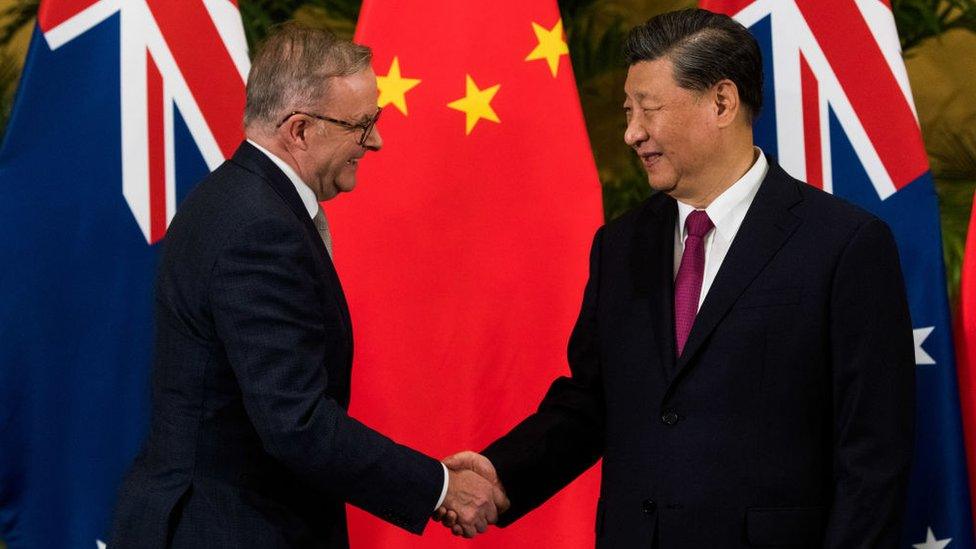Australian PM Albanese hails progress with China after Xi talks
- Published
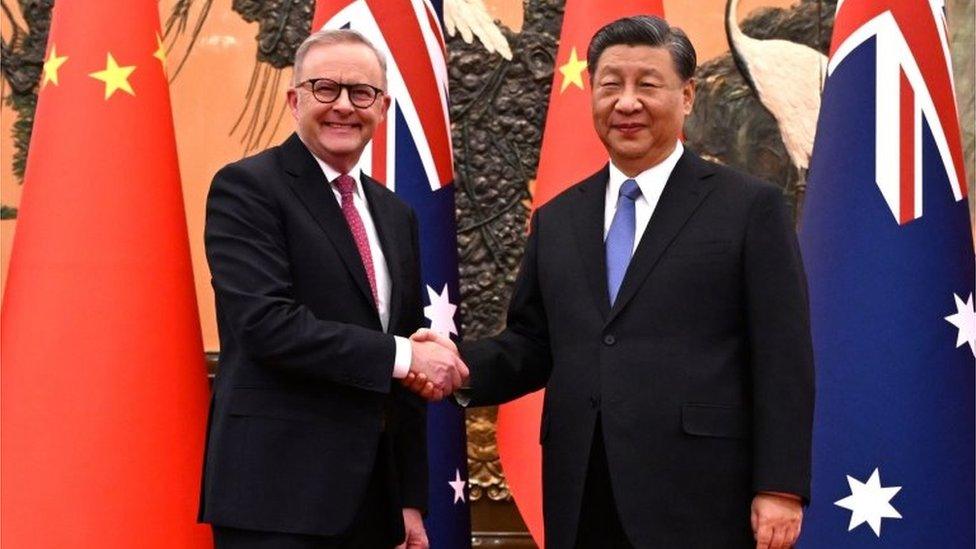
Albanese (left) - seen with Xi in the Great Hall of the People - is the first Australian leader to visit China since 2016
Australian PM Anthony Albanese says there has been "significant progress" in relations with China after talks with President Xi Jinping in Beijing.
Mr Albanese, who landed in Shanghai on Saturday, is the first Australian leader to visit China since 2016.
The four-day state visit is seen as a key point in thawing relations, after a string of trade and security disputes.
Trade is at the top of the agenda - Mr Albanese is calling for the removal of Chinese tariffs on Australian goods.
Mr Xi was expected to ask for more access to key Australian sectors.
Both men pledged to continue working in the "mutual interests" of their countries, following years of tensions.
Welcoming Mr Albanese to the Great Hall of the People, President Xi said China and Australia stood to become "trusting partners" and were on the "correct path of improving and developing relations", state broadcaster CCTV said.
Mr Xi told Mr Albanese that Beijing hoped to "fully develop the potential of the China-Australia free trade agreement".
Ahead of their talks, Mr Albanese had told reporters: "We need to co-operate with China where we can, disagree where we must and engage in our national interest.
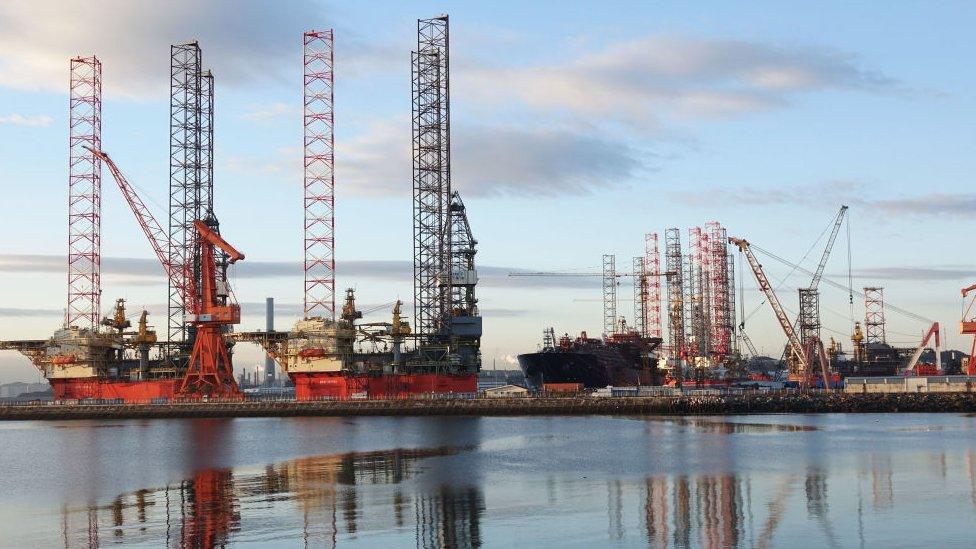
China's ports restricted Australian coal imports as relations nosedived
"I think there are promising signs. We've already seen a number of the impediments to trade between our two nations removed and an uplift already, substantial uplift, in the trade between our two nations."
His trip follows a diplomatic deep freeze prompted by - among other things - Australia's calls for an investigation into the origins of Covid-19, and economic sanctions enacted by Beijing on key Australian exports such as beef, wine and barley.
It also coincides with the 50-year anniversary of Gough Whitlam's iconic visit to China to meet Mao Zedong in 1973, marking the first trip by an Australian prime minister after the establishment of diplomatic ties.
Asked by reporters if Australia can "trust" China, Mr Albanese said his past engagements with Mr Xi had been "positive" and "constructive".
"But we recognise, as well, that we come with different political systems, very different values arising from that and different histories. But we deal with each other on face value."
However, a list of sticking points and security concerns hangs over Monday's talks.
Australian writer Yang Hengjun - whose health is said to be rapidly deteriorating - has been imprisoned in China on espionage charges since 2019, and Mr Albanese is facing pressure at home to secure his release.
Canberra's growing military ties with Washington and a recent overhaul of its defence posture - widely seen as aimed at countering China - could make it difficult for the two sides to find common ground apart from economic interests, analysts say.
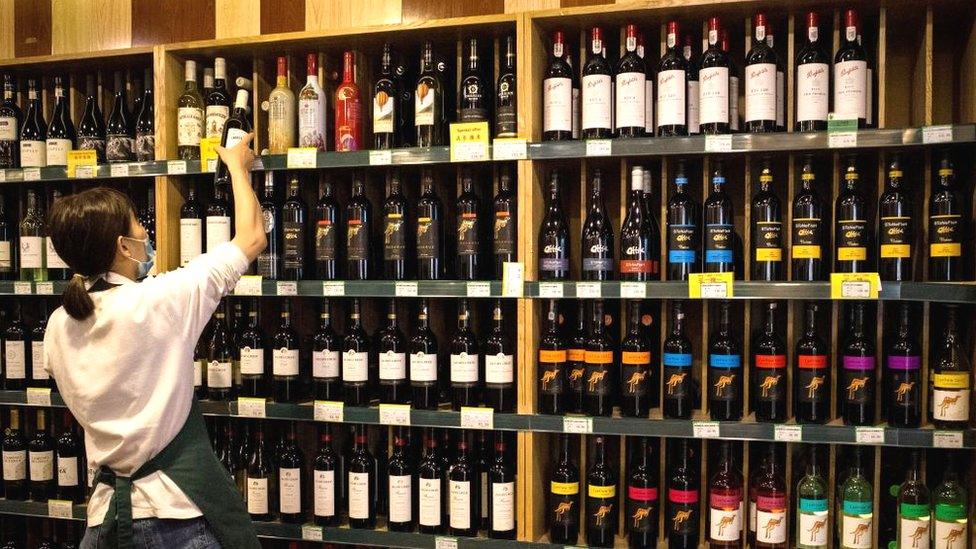
Australian wine was one the targets of Chinese tariffs in a bitter trade war
Some experts predict Beijing could push for greater access to Australia's resources and renewable energy sectors, but in recent years, the Australian government has taken measures to inhibit Chinese ownership of critical minerals and mining projects.
"I walk away from the meeting satisfied that we have positive engagement between Australia and China," Mr Albanese told reporters.
He said Russia's invasion of Ukraine and conflict in the Middle East had been raised at the meeting - but the "14 grievances" China held with Australia when diplomatic ties were at their lowest point were not.
"I spoke about guardrails and military-to-military co-operation between the United States and China; that's important," Mr Albanese said.
Related topics
- Published2 November 2023
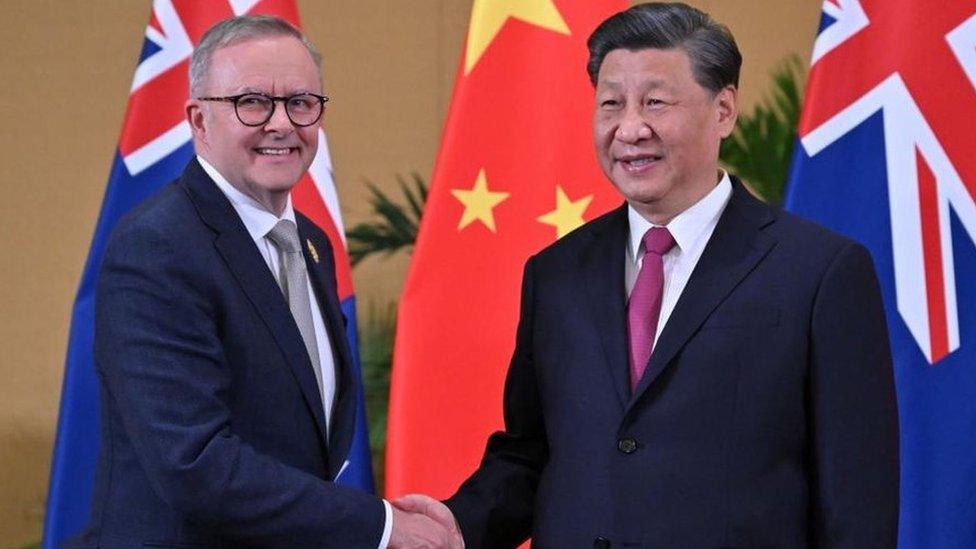
- Published3 November 2023
